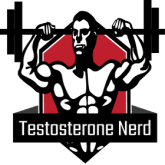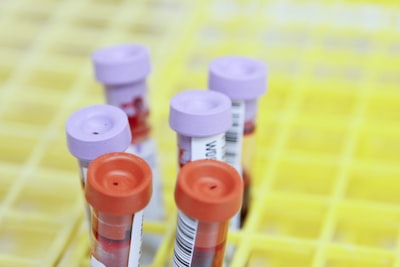How testosterone affects sexual satisfaction has been a topic of much debate and speculation over the years.
There are those who believe that high levels of testosterone can lead to increased sexual desire and satisfaction, while others argue that the two are not necessarily linked.
In recent years, however, there has been growing interest in exploring the complex relationship between testosterone levels and sexual satisfaction, as researchers seek to gain a better understanding of the role that hormone levels play in determining sexual health and wellbeing.
At the heart of this debate is the question of how testosterone affects the brain and body in relation to sexual desire and activity.
Does a higher level of testosterone translate to better sexual satisfaction, or is the situation more complex than that?
There are several theories around this topic, and we’ll attempt to dissect them all in this article.
Testosterone is the quintessential male hormone that has long been associated with masculinity, virility, and sexual prowess.
But what exactly is testosterone, and how does it affect sexual satisfaction?
Testosterone is a steroid hormone that is primarily produced in the testicles of men and in smaller amounts in the ovaries of women.
It plays a key role in the development of male sexual characteristics, such as muscle mass, body hair, and a deep voice. But testosterone is not just limited to the physical aspects of sex.
It also has a significant impact on sexual desire, arousal, and performance.
Men with higher levels of testosterone tend to have a higher libido and better erectile function, while women with higher levels of testosterone tend to be more sexually assertive and adventurous.
However, the relationship between testosterone and sexual satisfaction is complex and multifaceted. For example, while testosterone may increase sexual desire, it may also contribute to aggression and impulsive behaviors that can harm intimate relationships.
Moreover, testosterone levels can fluctuate wildly throughout a person’s life, influenced by factors such as age, diet, exercise, and stress. So, how can you harness the power of testosterone to enhance your sexual satisfaction?
The answer lies in striking a delicate balance between testosterone and other hormones, such as estrogen and progesterone.
By optimizing your hormone levels through lifestyle changes, supplements, or hormone therapy, you can maximize your sexual performance and pleasure while avoiding the negative side effects of excess testosterone.
In conclusion, understanding the connection between testosterone levels and sexual satisfaction is crucial for anyone looking to improve their sex life.
Whether you’re a man or a woman, young or old, there are many ways to optimize your hormone levels and unleash your full sexual potential. So, why not take the first step today and explore the exciting world of testosterone and sexual satisfaction?
The rewards are sure to be unforgettable.
The Role of Testosterone in Sexual Function
Sexual satisfaction is a complex and multifaceted experience that can be influenced by a range of physiological and psychological factors.
One such factor that has received significant attention over the years is testosterone, the primary male sex hormone.
Testosterone plays a crucial role in sexual function, affecting everything from libido to erectile function.
However, the relationship between testosterone levels and sexual satisfaction is far more complex than what many people may initially assume.
While it’s true that testosterone can positively impact sexual desire and performance, research suggests that the connection between this hormone and sexual satisfaction is not always straightforward.
One of the major challenges in studying the role of testosterone in sexual satisfaction is that testosterone levels are highly variable, both within individuals and between individuals.
Factors such as age, diet, and exercise can all impact testosterone levels, with older men generally experiencing lower levels than younger men.
Some research has suggested that higher testosterone levels may be associated with greater sexual satisfaction.
In fact, the relationship between testosterone and sexual satisfaction may be more nuanced than a simple correlation. For example, some research has suggested that testosterone may be more strongly linked to sexual desire rather than sexual satisfaction per se.
Other studies have found that testosterone levels may only be associated with sexual satisfaction in certain contexts or with specific sexual behaviors.
Overall, the connection between testosterone and sexual satisfaction is complex and multifaceted, and it’s unlikely that there is a one-size-fits-all answer to this question.
Despite the many unanswered questions about the role of testosterone in sexual satisfaction, it’s clear that this hormone plays a crucial role in male sexual function.
For men experiencing sexual dysfunction or reduced libido, low testosterone levels may be a contributing factor.
If you’re concerned about your testosterone levels or are experiencing sexual problems, it’s important to speak with your healthcare provider to explore potential underlying causes and treatment options.
And, as with all aspects of sexual health and satisfaction, open communication with your partner can be key.
Ultimately, the relationship between testosterone and sexual satisfaction is just one small piece of the complex puzzle of human sexuality.
Low Testosterone and Sexual Satisfaction
Sexual satisfaction and testosterone are two terms that have been linked for centuries, yet the recent scientific developments have made it possible for us to dive deeper into the connection between the two.
Low testosterone levels seem to be impairing not only men’s sex drive but also the quality of their erections.
Studies show that men with low testosterone levels are more likely to experience a decrease in sexual activity and satisfaction.
However, testosterone therapy is not always the answer to solving these problems.
Testosterone replacement therapy can have negative side effects, including sleep apnea, acne, and prostate enlargement, leading to concerns over its efficacy for treating low testosterone levels.
This has led researchers to explore alternative treatments, such as lifestyle changes, dietary alterations, and exercise regimens.
A regular workout routine has been found to positively impact not only testosterone levels but also erectile function and libido. In addition, incorporating a balanced diet rich in vitamins, nutrients, and protein can improve overall well-being, including sexual function.
But how do women fit into the picture?
While testosterone is often considered a male hormone, it also plays a role in women’s sexual health.
Women with low testosterone levels have been found to have lower sexual desire and arousal, leading to decreased sexual satisfaction.
Similarly, hormone therapy is not always the best solution for women.
Instead, therapies such as mindfulness-based interventions, sex therapy, and cognitive-behavioral therapy can improve sexual satisfaction in women.
Overall, the connection between sexual satisfaction and testosterone levels is a complex one that requires careful consideration and individualized treatment.
However, by adopting healthy habits and seeking out therapy when necessary, individuals with low testosterone levels can take steps to improve their sexual satisfaction and overall quality of life.
High Testosterone and Sexual Satisfaction
The connection between testosterone levels and sexual satisfaction has long been a topic of fascination and speculation amongst researchers and laypeople alike.
High testosterone is often associated with virility, strength, and sexual prowess, while low testosterone is linked to diminished sexual desire, decreased muscle mass, and a lack of energy.
But what do we really know about the relationship between testosterone and sexual performance?
Recent studies have shed new light on this complex issue, showing that testosterone plays a crucial role in sexual arousal and desire, but that many other factors, such as stress, relationship dynamics, and overall health, also contribute to sexual satisfaction.
One promising area of research focuses on the benefits of testosterone replacement therapy for men with low testosterone levels.
Studies have shown that this treatment can improve sexual function, increase sexual desire, and boost overall satisfaction. However, it is important to note that testosterone replacement therapy is not without risks, and should be carefully monitored by a healthcare provider.
Other factors that can influence sexual satisfaction include lifestyle choices like diet, exercise, and sleep habits.
A healthy lifestyle can help to boost testosterone levels naturally, as well as improve mood, energy levels, and overall sexual function.
In addition, communication and intimacy in romantic relationships are key components of sexual satisfaction, and can help to enhance both physical and emotional pleasure.
Overall, the connection between testosterone and sexual satisfaction is complex and multifaceted, and requires a holistic approach to understanding and improving sexual function.
By taking into account the many factors that influence sexual performance, men and their partners can enjoy a fulfilling and satisfying sex life for years to come.
So, what do you need to know about testosterone and sexual satisfaction? The answer is both simple and complicated: it’s important, but it’s not everything.
Hormonal Imbalances and Sexual Health
Testosterone has long been associated with sexual functioning in both men and women, but its specific role in sexual satisfaction remains somewhat unclear.
Recent research has explored the possibility of a link between levels of testosterone and sexual satisfaction, with some studies pointing to a positive correlation between the two.
However, the relationship is far from straightforward.
Hormonal imbalances can lead to a wide array of sexual health issues, including low libido, erectile dysfunction, and decreased satisfaction.
For some individuals, correcting hormonal imbalances can lead to improved sexual functioning and satisfaction. However, it’s important to note that testosterone levels are just one factor in overall sexual health.
Psychological factors, such as stress, anxiety, and relationship dynamics, can also play a significant role.
Additionally, some medications may interfere with testosterone production or affect sexual functioning in other ways.
Ultimately, the connection between testosterone and sexual satisfaction is complex and highly individualized.
It’s important for individuals experiencing sexual health issues to work with a healthcare provider to develop a customized treatment plan that takes into account all relevant factors.
The Importance of Testosterone Testing
The importance of testosterone for sexual health cannot be overstated.
Testosterone is a hormone that plays a crucial role in sexual desire, arousal, and performance in both men and women.
It is responsible for the development of male sexual characteristics, such as muscle mass, facial and body hair, and a deep voice, as well as regulating the menstrual cycle in women.
Low levels of testosterone can lead to a host of sexual problems, including erectile dysfunction in men and low libido in women.
While testosterone levels naturally decline with age, some individuals may experience a more significant drop due to other factors such as lifestyle choices, medications, or medical conditions.
In these cases, testosterone replacement therapy may be recommended.
However, before embarking on any treatment, it is crucial to undergo testosterone testing to determine one’s current hormone levels.
This involves a simple blood test to measure the amount of testosterone in the bloodstream.
It’s important to note that testing for testosterone should not be a routine part of a physical exam, but rather should be conducted when symptoms of low testosterone are present, such as low sex drive, fatigue, and depression.
Additionally, testosterone testing should only be performed by a qualified healthcare professional.
In conclusion, the link between testosterone levels and sexual satisfaction is a critical area of research that deserves attention.
By understanding the importance of testosterone for sexual health and undergoing proper testing, individuals can take control of their sexual wellbeing and improve their overall quality of life.
Treating Low Testosterone
Testosterone, the male hormone, does more than just affect your ability to grow a beard or put on muscle mass.
Research continually shows the impact of testosterone on sexual desire and satisfaction in both men and women.
For men, healthy testosterone levels can mean the difference between feeling like a high schooler or a retiree in the bedroom.
Low testosterone can lead to a bevy of unsavory symptoms, including erectile dysfunction and decreased libido.
But what about women, can testosterone levels impact their sexual satisfaction? Surprisingly, the answer is yes.
While women’s testosterone levels are typically lower than men’s, hormones still play a large role in a woman’s sexual health.
That’s why low testosterone levels in women can cause a decrease in sexual desire, satisfaction, and even orgasm.
So, what can be done about low testosterone? Luckily, there are various options for treating low levels of testosterone, including testosterone therapy.
However, it’s important to note that these treatments aren’t for everyone and should be discussed with a healthcare provider.
At the end of the day, the impact of testosterone on sexual desire and satisfaction is significant, and taking care of your hormones can help you lead a happier, healthier sex life.
Holistic Approaches to Boosting Testosterone
To understand the connection between testosterone levels and sexual satisfaction, it’s important to first understand what testosterone is and what it does in our bodies.
Testosterone is a hormone produced primarily in the testicles, but also in smaller amounts in the adrenal glands in both men and women.
It plays a crucial role in the development of male reproductive tissues, as well as promoting secondary sex characteristics like increased muscle mass and bone density.
In women, testosterone helps regulate the menstrual cycle and plays a role in sexual desire.
But what about sexual satisfaction?
While testosterone isn’t the only factor involved in sexual function and satisfaction, it certainly plays a role.
A number of studies have suggested a link between low testosterone levels and decreased sex drive, erectile dysfunction, and other sexual problems.
So what can you do if you’re experiencing symptoms of low testosterone and it’s affecting your sexual satisfaction? One approach is to explore holistic strategies for boosting testosterone levels.
This might include lifestyle changes like regular exercise and a balanced diet, as well as supplements and natural remedies like ashwagandha or maca root.
But for some people, testosterone therapy may be necessary to bring levels back into a healthy range. However, it’s important to approach testosterone therapy with caution, as it can have both benefits and risks.
Some potential benefits might include increased energy, improved mood and cognitive function, and of course, improved sexual function and satisfaction.
However, there are also potential risks like acne, breast enlargement, and an increased risk of blood clots.
As with any medical treatment, it’s important to weigh the potential benefits and risks with your healthcare provider and make an informed decision that’s right for you.
Overall, exploring holistic approaches to boosting testosterone may be a useful complement to any medical treatment.
In Summary
As we reach the end of this journey exploring the intricacies of testosterone and sexual satisfaction, we cannot help but feel a sense of awe and wonder at the sheer complexity of the topic.
With each new study and revelation, we are forced to re-examine what we thought we knew about human sexuality and how it relates to hormones.
From the way testosterone affects physical arousal to its role in shaping our preferences and desires, there is still so much we have yet to fully understand. But even in the midst of this uncertainty, one thing is clear – the impact of testosterone on sexual satisfaction can be profound.
Whether it’s through the increase in libido and sexual function that comes with rising levels of the hormone or the ways in which it influences our relationship dynamics, testosterone plays a critical role in our sexual lives. But with this greater understanding comes a responsibility to use it wisely.
We must resist the urge to simplify the complex interactions between our hormones and our sexual experiences, and instead embrace the complexity that makes us uniquely human.
As we continue to explore the mysteries of testosterone and sexual satisfaction, we must remember that there is no one-size-fits-all solution.
What works for one person may not work for another, and what we thought we knew today may be completely upended tomorrow.
So let us continue to delve deeper into the complexities of human sexuality, guided by the wisdom that comes from scientific inquiry and the creativity that comes from the human spirit.
Together, we can unlock the secrets of our sexual selves and endeavor to live happier, healthier, and more fulfilling lives.
FAQs
What is the connection between testosterone levels and sexual satisfaction?
Testosterone is a hormone that plays a crucial role in male sexual function, including the development of the male reproductive organs, sperm production, and libido.
Research suggests that higher levels of testosterone are associated with increased sexual desire, arousal, and overall satisfaction.
Can low testosterone levels affect sexual satisfaction?
Yes, low testosterone levels in men can result in reduced sex drive, erectile dysfunction, and other sexual dysfunctions, which can negatively impact sexual satisfaction.
However, it’s important to note that many other factors can also contribute to sexual problems, and low testosterone may not always be the primary cause.
Do women’s testosterone levels affect their sexual satisfaction?
Yes, testosterone also plays a role in female sexual function, including libido and arousal.
However, the relationship between testosterone levels and sexual satisfaction in women is less clear than in men, and other factors such as hormonal birth control use, stress, and relationship dynamics may also influence sexual satisfaction in women.
Can testosterone therapy improve sexual satisfaction?
Testosterone replacement therapy (TRT) may be effective in improving sexual function and satisfaction in men with low testosterone levels.
However, it’s important to note that TRT may not be appropriate for everyone and can have potential side effects, so it should only be prescribed and monitored by a qualified healthcare provider.
Are there other ways to naturally increase testosterone levels and improve sexual satisfaction?
Yes, certain lifestyle factors such as regular exercise, healthy diet, adequate sleep, stress reduction, and maintaining a healthy weight may help to naturally increase testosterone levels and improve sexual function and satisfaction.
However, it’s important to discuss any concerns or symptoms with a healthcare provider to determine the underlying cause and appropriate course of action.
I've been fascinated by natural male hormone optimization since 2016. And ever since I've been going through boatloads of different meta-analyses and scientific data associated with increasing testosterone levels naturally. I hold a PhD degree in public health and have 10+ scientific publications on Google Scholar. Thus, in my collective work here you'll find helpful tricks, natural remedies, detailed product reviews (including stuff I've personally tried)... and more!






